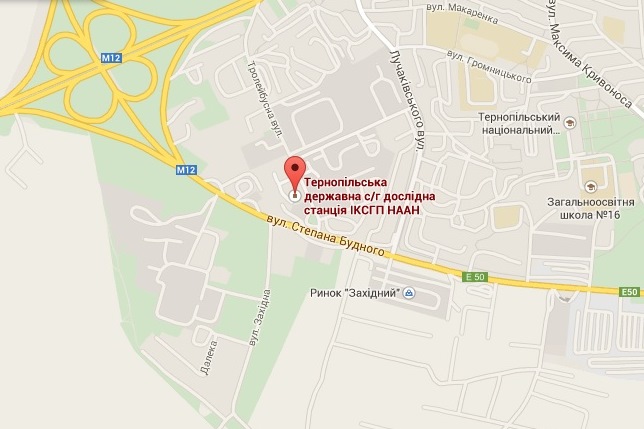| Головна » Статті » Конференція_2016_03_24-25 » Секція_2_Технології_і_природа |
Fesenko Alla Senior Lecturer, Kharkiv Vasylenko National Technical University of Agriculture Pankova Oksana Ph.D., Associate Professor, Kharkiv Vasylenko National Technical University of Agriculture Bezpalko Valentina Senior Lecturer, Kharkiv Vasylenko National Technical University of Agriculture
PROSPECTS OF ORGANIC FARMING IN UKRAINE
Current trends of development civilization have set new tasks: we need not only to increase production, including farming, but we want to have safe, physiologically valuable products of high quality also. Modern farming aims to get more products with minimal labor costs. But the nutritional value of foods is not taken into account, and the manufacturers do not care about possible negative effects on human health and the environment. In such circumstances, the notion of organic production was introduced. The organic production will be based on imitation and using of the processes that occur in nature. In September 2013 the Law of Ukraine № 425-VII «Production and turnover of organic agricultural products and raw materials" was committed. Due to this law, the production of organic products (raw materials) is a production activity of individuals or legal persons (including cultivation and processing) where during production the using of chemical fertilizers, pesticides, genetically modified organisms (GMOs), preservatives, etc. are excluded and all stages of production (cultivation, processing) apply methods, principles and rules laid down by law for obtaining natural (environmentally friendly) products as well as the conservation and restoration of natural resources [1]. European approach is deeper significantly. European legislation calls as organic production an overall system of farm management and food production that combines best environmental practices, a high level of biodiversity, the preservation of natural resources, the application of high animal welfare standards and a production method in line with the preference of certain consumers for products produced using natural substances and processes. The organic production method thus plays a dual societal role, where it on the one hand provides for a specific market responding to a consumer demand for organic products, and on the other hand delivers public goods contributing to the protection of the environment and animal welfare, as well as to rural development [2]. Detailed analysis shows that the Ukrainian legislation on organic production is based on European approaches, repeats them and expands in some way. Same vision of methods and principles can be traced in the rejection of the use of chemically synthesized pesticides, fertilizers, GMO, priority is emphasized to biological methods of soil fertility restoration. However, European regulation states the requirement of a comprehensive agricultural production both in crop and livestock too [3]. Ukrainian legislation does not use this principle. There are big differences in the implementation of these approaches. In the EU this system works well quite, it has a clearly defined practical conditions of implementation, labeling and more. In Ukraine subordinate legislation is being developed only. In Ukraine more than 400 hectares or about 1.0% of arable land have been engaged in the organic production by 2014 [4]. Ukraine is the twentieth country in the world among the countries supporting the organic movement. The largest proportion of organic products includes wheat, leguminous plants and sunflower among domestic organic products. Large organic farms are in the central, southern and western regions. Organic cultivation of the fruits and vegetables is much more difficult. From certified farms, the share of livestock producers accounts for 10% due to more stringent requirements than for crop production. What prospective in organic farming of Ukraine is? On the one hand, Ukraine has fertile soil, due economic problems fertilizers and pesticides are used in little amount. These conditions say about ample opportunity in organic farming. On the other hand, Ukrainian standards in this field are poor and ineffective. We have got the Law on organic products, but there are no more precise definition about permissible kinds of manor, fertilizers, pesticides, and other agricultural substances. Political will does not support this system although natural conditions are good. Ukraine has several advantages for the implementation of organic production due to the fertile black soil because the cost of production can decline. In addition, high-quality organic products are a chance to find their place in the global market. But the most important fact in the implementation of organic farming is provision of high-quality products which are a source of vitamins, minerals and, in fact, health, strength and inspiration for the Ukrainian people.
References
| |
| Категорія: Секція_2_Технології_і_природа | Додав: Admin (24.03.2016) | |
| Переглядів: 521 |
| Всього коментарів: 0 | |



